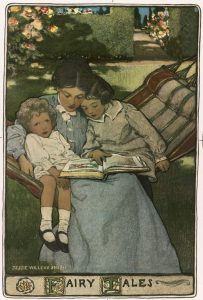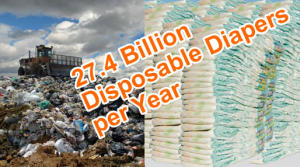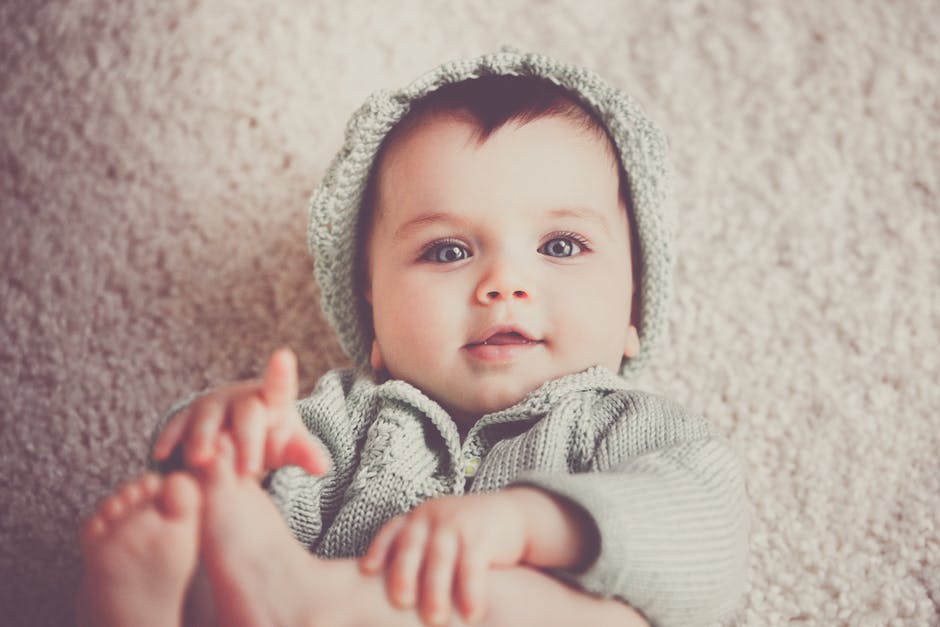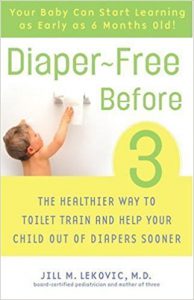No Diaper Baby
Potty Training over the years-No diaper baby
Potty training your child is an experience that is different for each family and depends greatly on cultural and environmental factors. The age at which a child should be toilet trained may vary from culture to culture and from family to family in each culture. According to my Internet research, here in the United States, before the 1950’s, most children were using the potty as early as the first few months from birth and completely toilet trained by age 1. During the 1970’s, 18 months old was when most children were potty trained. Over the years, the average age for being potty trained has increased. Today the average age is from 2 years old to 3 years old.

Potty Training and Psychology
The philosophy to hold off on potty training until later in a child’s life stems from a change in how potty training was seen in the 20th century by psychiatrists, psychologists and pediatricians of the industrialized nations such as the United States. The emphasis on the psychological impact of how people progress through childhood growth and development, gained major momentum in the early 1900’s. During the mid 1900’s psychiatrists such as Freud, contended that anxieties and other adult personality problems stem from the mishandling of childhood milestones such as developing trust and other life events such as potty training.
Many pediatricians, psychiatrists and psychologists today subscribe to the psychological impact theory and support the “readiness” approach to everything in childhood development, including the readiness to be potty trained. Dr. Brazelton, a leading modern pediatrician subscribes to the readiness theory and advocates this, so it has become the conventional thought for potty training.

Diaper Free – No diaper Baby
Pediatrician, Dr. Jill M. Lekovic contends that toilet training can begin as early as 9 months. She also contends that this is a healthy age to begin and it is beneficial for your child. Toilet training is less stressful according to Dr. Lekovic for the parent and the child if they start early because it becomes part of the child’s routine. Your child will not remember “unlearning” to go in their diapers because they will only remember using the potty or toilet. She has written a book, Diaper-Free Before 3. Dr. Lekovic recommends to parents ways to help their children communicate with them and both parents’ and children become aware of the child’s body signals for elimination.
(click on image for book preview)
Other Cultures and potty training
According to my research of reference materials on the Internet, there is no scientific studies or basis to support Dr. Brazelton’s theory that potty training needs to be an area to tread lightly. Since babies are usually potty trained before age 1 in other cultures such as in Malaysia, it seems that potty training at an earlier age does not affect the child’s developing personality.
If you look at the readiness view and the elimination communication view objectively, it is not about when your child is ready. He is ready at birth to eat, eliminate and grow. It’s when his family is ready to provide a way to help him to eat and direct him where to eliminate…the diaper or the toilet that makes the difference. On the other hand, Dr. Brazelton has a point when he says EC (elimination communication) does not fit well in industrialized societies where the mother and father quite often are employed outside the home. They may not have enough time to observe their baby for elimination cues. The modern pace of life is a obstacle to EC but if one follows the argument for EC, babies could be potty trained by the time moms were done with maternity leave which is about a six week period.
Benefits of EC potty training
There are benefits to EC potty training for baby’s family such as saving money, better skin health for the baby’s bottom, closeness to and bonding for baby and family members. Environmentally, it would reduce synthetic disposable diapers filling up landfills. The disposable diaper companies would have to develop other products.

The downside is it takes time and is difficult to travel because facilities may not be available when you need them. You would have to have a babysitter or another family member willing to continue the EC potty training if you need to leave for work or other obligations where you could not bring your baby along.
All in all, potty training can be done in different ways. When it is done depends on the family and their frame of reference about child rearing from traditional or conventional views and the knowledge they are privy to. Potty training at an early age, elimination communication view or potty training, readiness view, at a later age 18 months- 2 1/2 years old, depends upon the family. The success of either potty training view is obtained through consistency, patience and love.
P.S. Why do you think children aren’t potty trained as early as they used to be in early 20th century?
Do you think disposable diapers are bad for the environment?
Which method of potty training would you use?
Please share your thoughts and comments with us. Share this post !



Great article Delois! I have a one-year old right now. My mom just sent me a toddler potty, and I have been pondering when to start with that. I already saved myself tons of dollars by cloth diapering her since birth, so I didn’t feel the pressure of potty training to save money. Still, I want to get her out of diapers and escorting herself to the toilet. That would be so much easier for me. I will have to take a look at elimination communication more. Will you be writing on that more?
Hi Tiffany,
I don’t know what happened to my reply to you. It just disappeared. Thanks for reading my article. Yes I will be writing more on EC. There are many helpful videos on YouTube from parents actually using EC for their babies. They share tips and personal experiences about it. GoDiaperFree is also a website with helpful information. All the best to you and your one year old. 😉
Diapers itself, whether it is cloth or disposable gives Mother Earth a rather strong upper cut, if you know what I mean. They both consume some of our resources like water, electricity, landfill space. However, it can’t be helped because city life demands every ounce of our time, effort, and patience, so manually cleaning up after our children before they are completely potty trained sounds a bit far fetched. Nevertheless, elimination communication training is definitely possible even if it is not an industrialized area. It just takes a lot more patience and hard effort. Preferably it is better to do this in rural areas. It has the advantage of allowing “accidents” to freely land anywhere. This is why that in rural areas of china, it is actually possible to accidentally step on baby poop. For me, my daughter is still using her baby diapers. Training her won’t be easy since I am working most of the times. Does work get in your way too?
Hi Win Bill,
Thanks for checking out my latest post in the world of potty training. Yes, it does take time to potty train— readiness view or with EC view. Just sharing the different opinions about how to potty train in my latest post. The choices one makes depends on lifestyle, environment and support as does many life choices. My children are all adults now. I was working part-time when they were toddlers. Potty training was a team effort. My husband was in the Navy and gone most of the time, we were a tag team when he was home. It helps to have some support from family or friends.